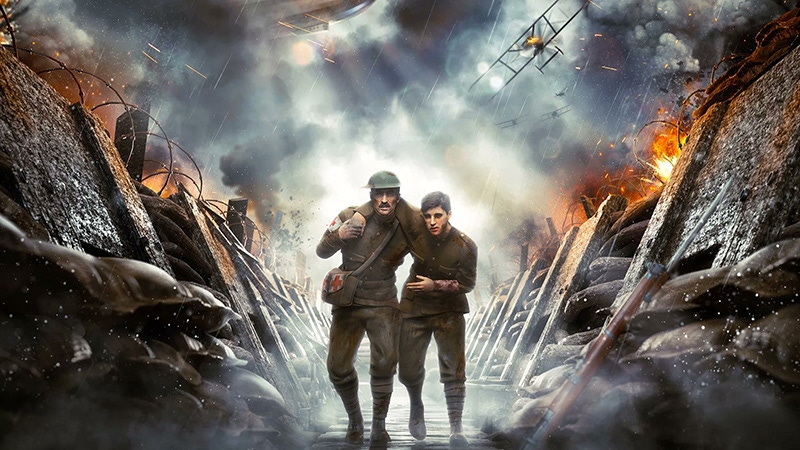What devs tackling morality can learn from War Hospital's card system
War Hospital's card-based triage system mixes card swipes, flavor text, and medical morality to put a face on the horrors of World War I.

At a Glance
- War Hospital challenges players to efficiently manage a World War I field hospital.
- Developer Brave Lamb cooked up a medical card system to test their medical morals.
The success of 11-bit Studios' Frostpunk has led to a renaissance of gritty simulation games, all iterating on their own ways of putting the lives of hundreds or thousands of people in the hands of players.
One neat innovation in the genre comes from Brave Lamb's new World War I simulator War Hospital. The just-released hospital sim leads players to the edge of the Western Front, where thousands of British soldiers faced down bullets, artillery fire and dire disease. Millions died, millions more were gravely wounded. War Hospital players can't save everyone who comes through their camp, and it's through a tight triage system that Brave Lamb simulates the split-second calls doctors and nurses made in the war.
Developers looking to also snap-test the morality of players may want to learn from it. As Brave Lamb lead designer Jakub Kedzior explained, the studio pared down a series of medical charts into quick cards that show how bad an incoming soldier is wounded—and prods players to think about the "person" they're trying to save.
War Hospital's triage system bundles medical maladies and human flavor
War Hospital's triage card system kicks in when new soldiers are brought in from the font. Each of them has a unique set of injuries of varying severity and players can swiftly approve or deny their care with the click of a mouse after checking their data on the card.
Image via Brave Lamb/Nacon.
Kedzior said that at first glance, the card sorting seemed to be derived from the sorting system from Papers, Please , but it began life in the guise of a standard medical file. "The first thing we needed to do was cut the [amount of] information," Kedzior explained. Earlier prototypes of War Hospital had a denser wound system, but player confusion in the patient sorting meant it had to be drastically pared back.
But there came a point where reducing the amount of systems didn't reduce player frustration. That's when the format itself had to change. What was once a medical file became a quickly sortable medical card, with the most relevant stats sorted to the top.
The system had gotten to a functional state, but Brave Lamb had a new problem: players looking to optimize their hospitals would mix/max their way through a process that reduced soldiers to slabs of meat, and it undermined the solemn tone they'd hoped to strike with a game about World War I.
Enter the flavor text. Each soldier's card contains a short fact about their life; some describe how they befriended a pet rat in the trench, others talk about wives waiting at home or how some (like members of the British Indian Army) had served a long military career.
The text seems a bit maudlin at first glance. Wouldn't such a system benefit from asking players if they would treat rotten bastards with the same dignity as innocent men? According to Kedzior, players weren't interested in that moral dilemma.
Trying to ascribe any morality to the patients only desensitized players more than intended. "You get to a point when you reinforce the idea that some of them might be bad—that [there is] a negative feedback loop where people don't want to see if they're good or bad people, they just assume they can be bad, they can be good, it doesn't matter. They're all resources to be expended."
The flavor text that remains is meant to be "neutral," he said. Pointing out who the monsters and the heroes were hid the carnage of World War I, which flattened humanity in the flailing death throes of collapsing empires.
"Every soldier was a person first and foremost, and we wanted to show that," Kedzior stressed.
A triage system that can help players understand what "maximum efficiency" in a field hospital really means is the kind of system ripe for iteration and expansion. Tools like this can help developers who are eager to tackle the moral quandaries of real-world conflict and calamity in the years to come.
About the Author(s)
You May Also Like









